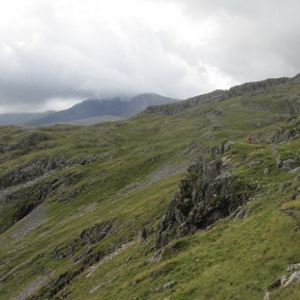 There was a very interesting article in the Guardian this weekend about the National Trust – Priced-out tenants accuse National Trust of creating ‘ghost villages’
There was a very interesting article in the Guardian this weekend about the National Trust – Priced-out tenants accuse National Trust of creating ‘ghost villages’
It is not always realised that as well as owning large stately homes, the National Trust also owns huge swathes of land, along with the villages and homes on it. Indeed, it is one of the UK’s largest landlords.
It is how they get much of their income.
Holiday lets or homes?
However, they are now being accused of creating “ghost towns” by increasing rents so they are unaffordable by local people and then turning the properties into holiday lets.
Joanna Leighton, co-chair of the Tenants’ Association of the National Trust said:
“It is of great concern because every home that is turned into holiday accommodation is one less home for a local person in a rural community,
In many cases local people find its properties unaffordable, meaning they are only a viable option for wealthier tenants, who use them as second homes. This risks reducing our rural communities to ghost towns for many months of the year, eroding our national heritage.”
The article cites the case of a tenant in Cornwall who has been served a section21 notice, who believes that this is due to requests for repair work to be done – in other words, alleging that the National Trust is guilty of retaliatory eviction. He said
“I am sure it wants this property back to refurbish it to a high standard and let it at a vastly higher rent, or as a holiday home,”
Other examples and complaints by tenants are set out in the Guardian article.
Homes v. income generation
It all comes down to, I suppose, what the primary purpose of the National Trust is.
- Is it to preserve stately homes and other national monuments so they can be visited and enjoyed by the public? Or
- Is it to maintain the way of life of its tenants?
We are told that the National Trusts housing policy includes helping to meet “identified social housing needs where we are a significant housing provider”
However, does that take priority over raising sufficient money to maintain its flagship properties? Something which is no doubt becoming increasingly expensive in this day and age.
Way of life v conservations
Then there is the role of the National Trust as a conservation body.
Another recent news story is its purchase of farmland in the Lake District at a price unaffordable to local farmers, but without purchasing the farm buildings – leading to accusations that it is ‘autocratic and out of touch‘ and speculation that it is looking to “re-wild’ the landscape, rather than continue using the land for sheep farming as has been done for generations.
However, another article here takes that view that re-wilding is necessary to help offset global warming and prevent flooding downstream. Begging the question – should this take priority over the traditional way of life of the hill farming community?
These are important questions as the National Trust is one of our largest landowners. It is also important to myself and many others who are National Trust members.
What is being done in our name? And what exactly is the National Trust for?
There is a real issue in the Lake District and the Peak District with way too many sheep grazing on the hills over the summer. This is due to farms buying in feed etc over winter, so allowing them to keep more sheep then used to be possible when the sheep just lived on the unfertilised fields over winter. So without taking farm land lot of production, or at least controlling how intensive its usage is, a lot of the vegetation on the hills will continue to be destroyed by over grazing.
The traditional way of life of the hill farming community no longer generates enough income due to the increase in the price of wool etc, hence hill farmer are not farming in the traditional way……..
(The other option would be to bring in legal limits on the number of sheep allowed to grace on “common land” and the hills etc. )
Many of the property the national trust rents out are old gate keepers collages etc, they are not on mains services due to being remote, so are very expensive to bring up to “modem standards” I don’t mind the only heating in a holiday collage being a wood burner, but not many tenant would be happy with that in the middle of winter with a sick child.
A lot of the so called “local people” are driving into towns to work, so should the housing for them not be provided in towns, letting the old cottages be used by holiday makers that will often spends at least a few days of the holiday walking directly from the property and not using their car?